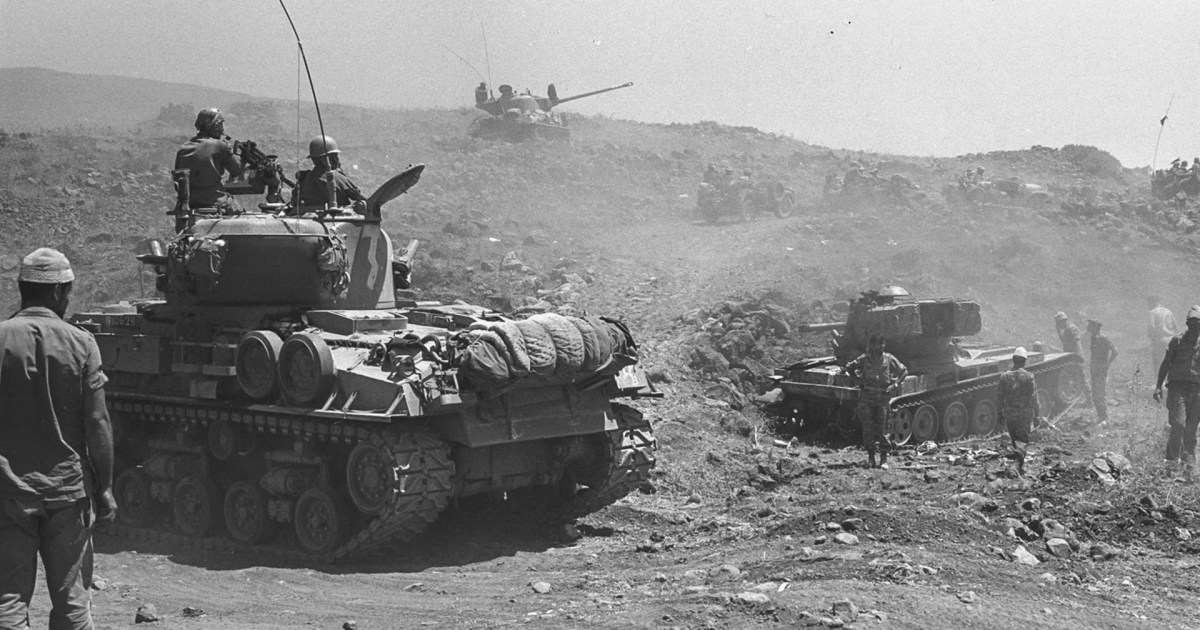The Egyptian Foreign Ministry announced that it assigned its embassy in Tel Aviv to demand that Israel open an investigation to clarify historical facts about the 1967 war, after the Israeli press reported the discovery of a mass grave of Egyptian soldiers believed to have been burned alive during the war.
And the Egyptian Foreign Ministry said on Sunday evening - in a statement - that "in response to a question about what was reported in the Israeli press in connection with historical facts that occurred in the 1967 war, the spokesperson for the Ministry of Foreign Affairs, Ambassador Ahmed Hafez, stated that the Egyptian embassy in Tel Aviv was assigned to communicate with the Israeli authorities. To investigate the truth of what is being circulated in the media.
She added that the embassy will "request an investigation to clarify the credibility of this information and to inform the Egyptian authorities urgently of the relevant details."
During the past days, the Israeli journalist Yossi Melman and the two Israeli newspapers, Yedioth Ahronoth and Haaretz, said that they had concluded that Egyptian soldiers were burned alive in the 1967 war, and their killing was not announced, and they were buried in an unmarked mass grave, in violation of the laws of war, amid estimates of their number reaching dozens.
Melman said - in a series of tweets on Twitter, last Friday - that "after 55 years of intense censorship, I can reveal that at least 20 Egyptian soldiers were burned alive and buried by the Israeli army in a mass grave, and they were not marked, and without specifying Their identity, contrary to the laws of war, is in Latrun, near Jerusalem.
He added that this happened during the "Six Day War", which is the Israeli name for the 1967 war, which the Arabs call the "setback."
details of the massacre
On the reasons for the presence of Egyptian soldiers in that area, Melman pointed out that the late Egyptian President Gamal Abdel Nasser had signed, days before the war, a joint defense agreement with the late King of Jordan, Hussein bin Talal, who was in control of the West Bank.
In this regard, Melman said, "Egypt deployed two battalions of commandos in the West Bank near Latrun, which was then a no-man's land, and their mission was to attack inside Israel and seize Lydda and nearby military airports."
Latrun is located on the road between Jerusalem and Jaffa, about 25 kilometers west of Jerusalem. After the 1948 war, it was agreed between Israel and Jordan to make it a forbidden area.
In the 1967 war, Israel occupied and annexed Latrun, which is today a suburb of occupied Jerusalem.
1/7 Breaking News: After 55 years of heavy censorship, I can reveal that at least 20 Egyptian soldiers were burnt alive and buried by IDF in a mass grave, which wasn't marked&without being identified contrary to war laws, in Latrun.
It happened during the Six Day's War>>> pic.twitter.com/mMe3LGIAoz
— Yossi Melman (@yossi_melman) July 7, 2022
Melman added - detailing what happened - "There was an exchange of fire with Israeli army soldiers and members of Kibbutz Nahshon (a cooperative agricultural group); some Egyptian soldiers fled, others were taken prisoner, and there are those who fought bravely," as he put it.
"At one point, the Israeli army fired mortar shells and set fire to thousands of uncultivated acres of bush in the dry summer," he said.
"At least 20 Egyptian soldiers died in the bush fire," Melman added.
"The fire spread quickly in the hot and dry bushes, and they had no chance to escape," the Israeli journalist quoted Zain Baloch, 90, who at that time was the military commander of Kibbutz Nahshon (a left-wing kibbutz).
"The next day, Israeli soldiers equipped with a bulldozer came to the scene and dug a hole and buried the Egyptian bodies and covered them with soil," Melman added.
"Bloch and some members of the (kibbutz) Nahshon watched with horror the Israeli soldiers looting the personal property of the Egyptians and leaving the mass grave unmarked," Melman added.
And the Israeli journalist continued, "Now, after the lifting of military censorship, Bloch adds that the veil of silence suits everyone; the few who knew did not want to talk about it, we felt ashamed; but above all, the decision of the Israeli army was in the midst of the war."
In his tweets, Melman indicated that unclassified official military documents delete "the Latrun tragedy from its records."
The Israeli military did not immediately comment on Melman's statement.
In the 1967 war, the Israeli army defeated the Arab armies, and occupied the West Bank, including East Jerusalem (which was under Jordanian control), the Gaza Strip (which was under Egyptian control), the Sinai Peninsula, and the Syrian Golan Heights.

